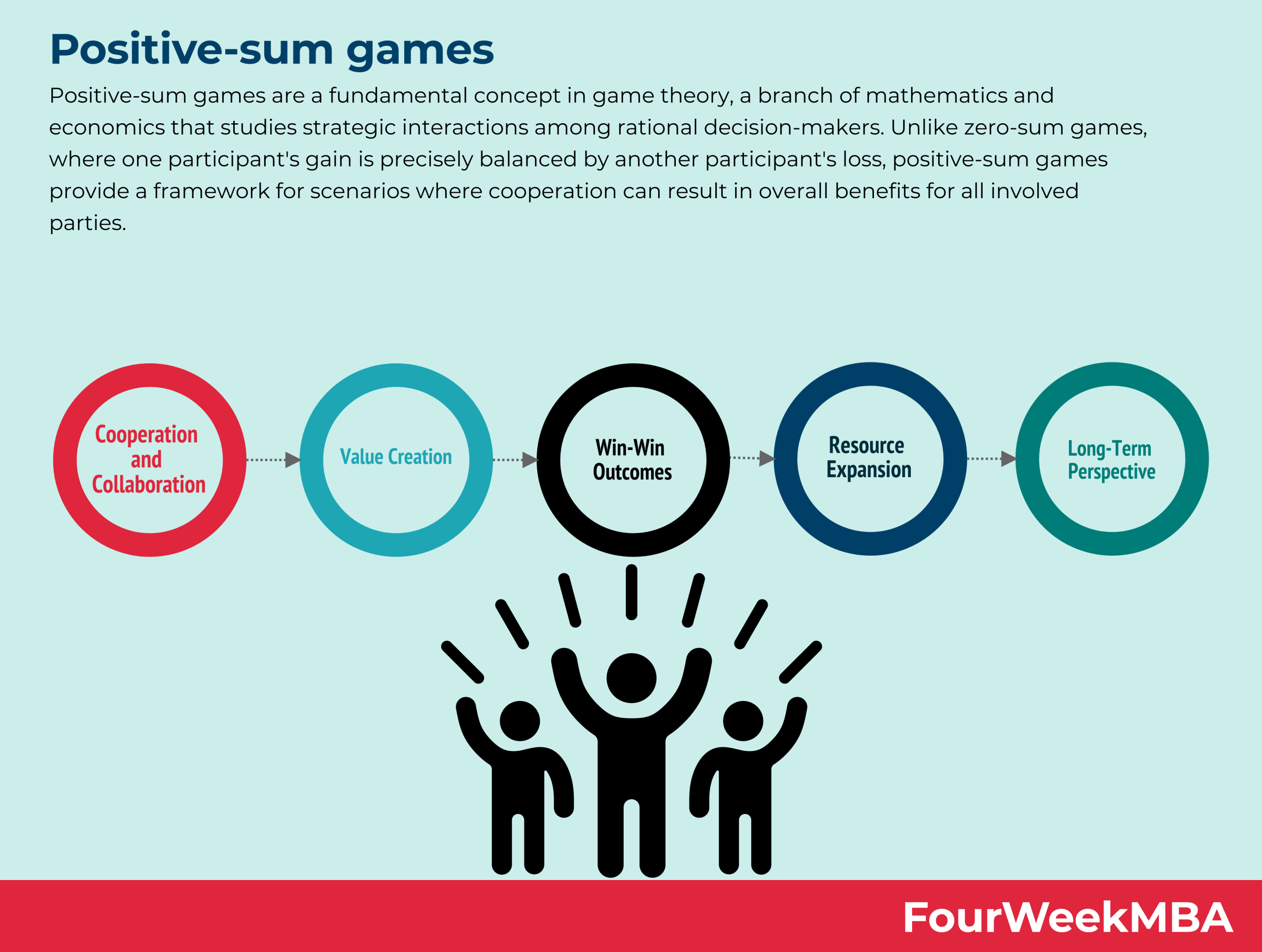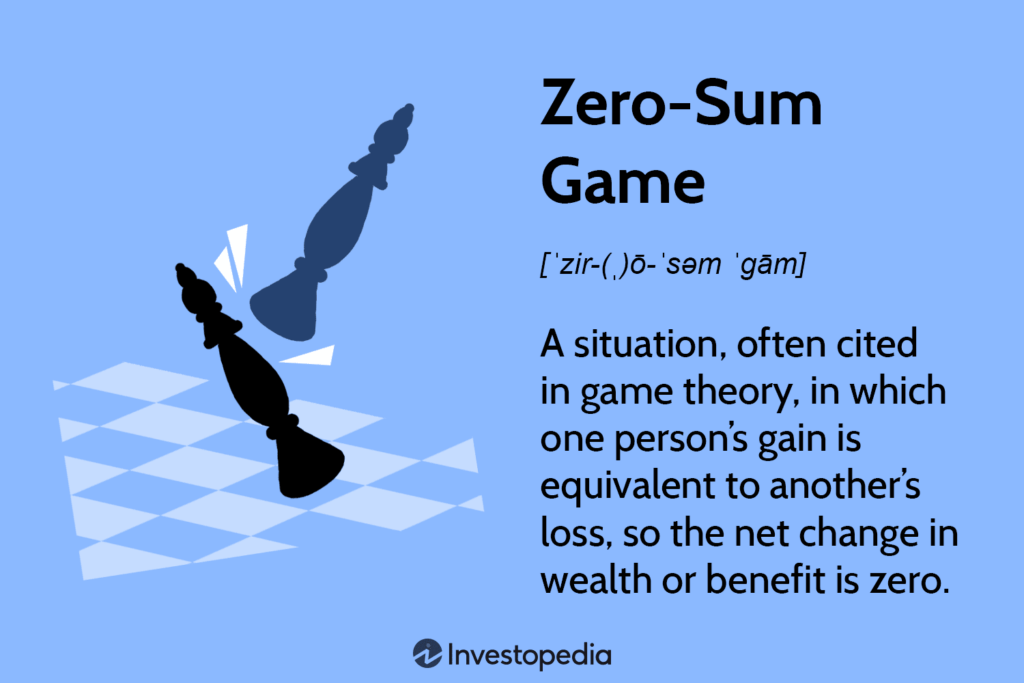In game theory, a zero-sum game refers to a situation where there is a fixed amount of resources and any gain by one participant is balanced by an equal loss by another participant. However, the opposite of a zero-sum game exists, and it is known as a positive-sum game.
What is a Positive-Sum Game?
Contrary to a zero-sum game, a positive-sum game is a situation where the total gains and losses are greater than zero. It occurs when resources are somehow increased, and an approach is formulated to satisfy the desires and needs of all parties involved. In a positive-sum game, all participants can benefit and achieve their objectives without necessarily causing harm to others.
One example of a positive-sum game can be found in cooperation and conflict resolution scenarios. By collaborating and finding mutually beneficial solutions, participants can generate more value and improve the overall outcome. This is in contrast to zero-sum games, where there is a fixed amount of resources that must be divided between participants, resulting in potential conflicts.

Credit: fourweekmba.com
Examples of Positive-Sum Games
There are several well-known examples in game theory that illustrate positive-sum games. These include:
- The Prisoner’s Dilemma
- Cournot Competition
- Centipede Game
- Deadlock
These examples demonstrate situations where the net result is greater than zero, even though there may be winners and losers. In a positive-sum game, the focus is on creating value and achieving optimal outcomes for all parties involved.
Negative-Sum Games
On the opposite end of the spectrum, there are negative-sum games. These are situations where the total gains and losses are less than zero. In a negative-sum game, one party can only maintain the status quo by taking something from another party. These games often result in conflicts and disagreements, as the resources are limited and a gain for one participant implies a loss for another.
Inverse of a Zero-Sum Game
While a zero-sum game is a well-known concept, it is important to note that the correct phrase is “zero-sum game” and not “zero sum gain.” However, if you are looking for the inverse of a zero-sum game, it can be referred to as a non-zero-sum game. In a non-zero-sum game, the gain or loss of one decision maker does not necessarily result in the opposite outcome for the other decision makers. It implies that there can be situations where one participant’s gain does not lead to others’ loss and vice versa.

Credit: fourweekmba.com
Frequently Asked Questions Of What Is The Opposite Of A Zero Sum Game? Discover The Power Of Positive Sum Games!
What Is The Positive Sum Game?
A positive sum game refers to situations where the total gains and losses are greater than zero. Resources increase, and an approach that satisfies the desires of all involved is formulated. It is the opposite of a zero-sum game.
What Is An Alternative To A Zero-sum Game?
A positive-sum game is an alternative to a zero-sum game where resources can increase while satisfying all parties involved.
What Game Has A Non Zero Sum?
The game that has a non-zero sum is a positive sum game. In this game, the total gains and losses exceed zero, benefiting all participants.
Is There A Negative Sum Game?
The opposite of a zero-sum game is a positive-sum game, where total gains and losses are greater than zero.
Conclusion
The opposite of a zero-sum game is a positive-sum game, where resources can be increased and all participants can benefit. By focusing on cooperation and finding mutually beneficial solutions, positive-sum games can lead to better outcomes for everyone involved.

